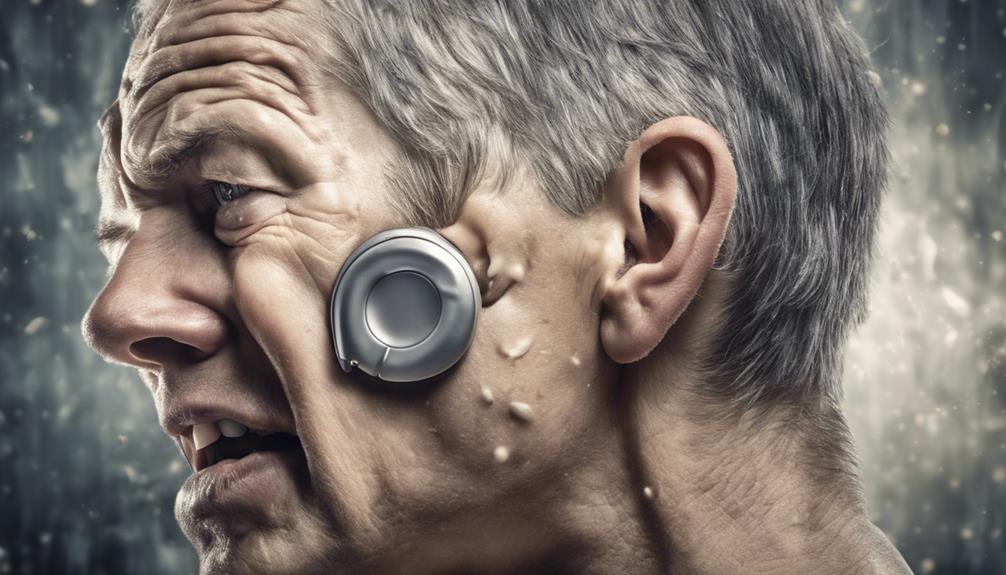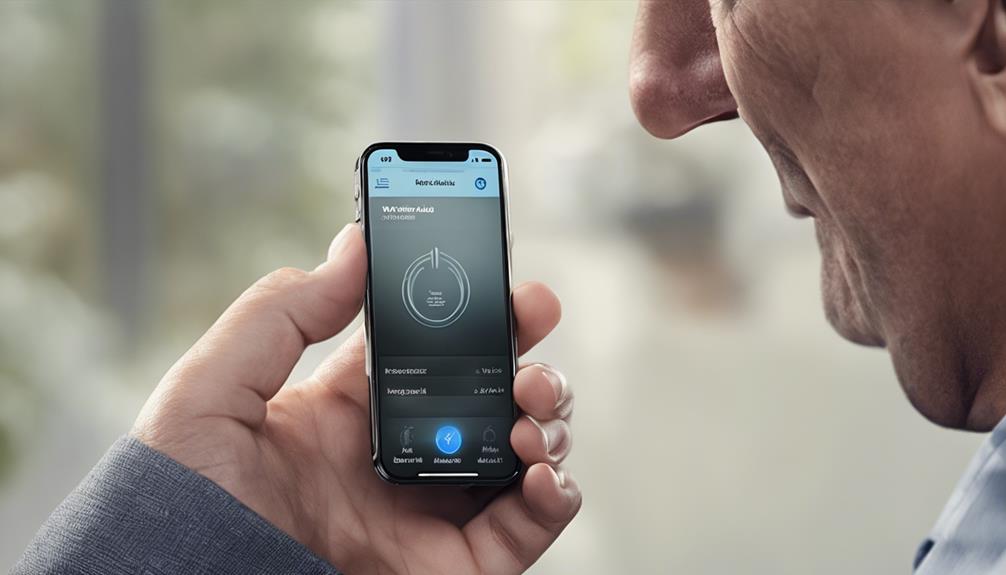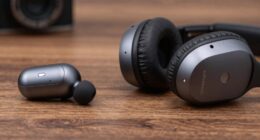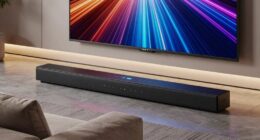Selecting the perfect hearing aid in Boise can feel overwhelming due to the vast selection available, however, it is crucial in finding the right match for your needs.
Understanding the intricacies of different devices and how they align with your lifestyle and hearing requirements is paramount.
From sleek designs to cutting-edge technologies, the journey to discovering the right hearing aid involves more than meets the eye.
Let's unravel the complexities of this decision-making process and shed light on key considerations that could lead you to the best solution for your hearing health.
Key Takeaways
- Consider lifestyle factors like daily activities and connectivity needs when selecting a hearing aid.
- Evaluate budget constraints and insurance coverage for testing, fitting, and ongoing services.
- Choose from various styles like BTE, RIC, ITE, ITC, or CIC based on hearing loss severity and preferences.
- Allow time for adaptation, gradually increasing wear, and seeking adjustments for a successful hearing aid experience.
Understanding Different Hearing Aid Styles
When selecting Boise hearing aids, it's crucial to understand the various styles available to cater to different types and levels of hearing loss. There are several common hearing aid styles to consider, each offering unique benefits tailored to individual needs.
The first style, behind-the-ear (BTE) hearing aids, is versatile and suitable for all ages and types of hearing loss, as they're curved to match the ear contour. Receiver-in-the-canal (RIC) hearing aids feature a thin wire connecting the behind-the-ear piece to the in-ear part, making them ideal for mild to moderately-severe hearing loss.
In-the-ear (ITE) hearing aids fill the outer ear portion and are suitable for mild to severe hearing loss, providing features like volume control and directional microphones for a personalized listening experience. In-the-canal (ITC) hearing aids fit partly in the ear canal, offering a discreet option for mild to moderately-severe hearing loss with longer battery life than ITE models.
Completely-in-the-canal (CIC) hearing aids are the smallest and least visible type available, molded to fit deep inside the ear canal, making them ideal for mild to moderately-severe hearing loss.
Important Features to Consider
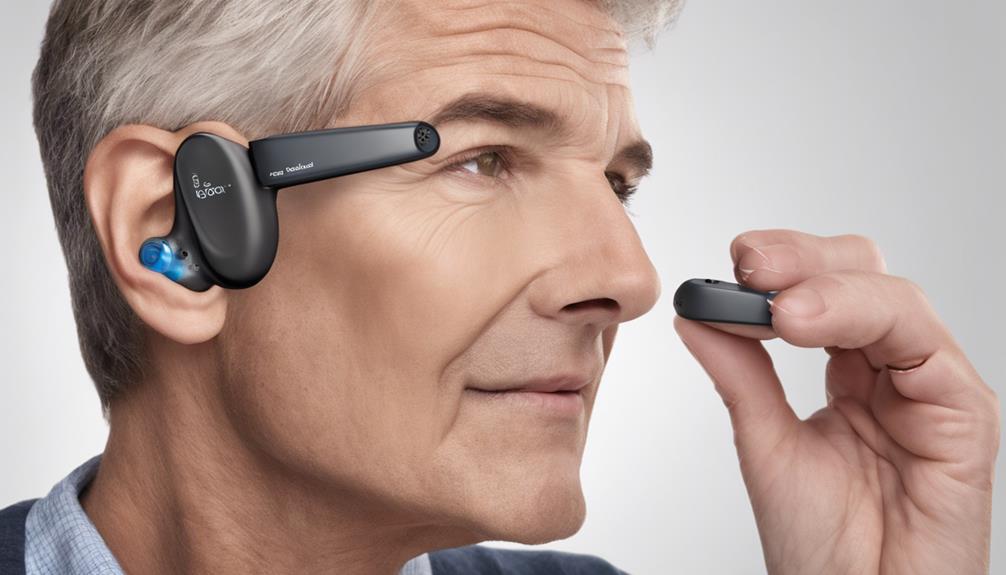
Considering important features like noise reduction and directional microphones is crucial when selecting a hearing aid in Boise. These features play a significant role in enhancing sound quality and speech clarity, especially in noisy environments.
When choosing a hearing aid, it's essential to evaluate options for digital programming, as it allows for customization to meet specific hearing needs. Additionally, exploring Bluetooth technology in hearing aids can provide seamless connectivity to electronic devices, offering convenience and versatility in daily activities.
Rechargeable hearing aids with long-lasting lithium-ion batteries are also worth considering, providing up to 24 hours of performance on a single charge. Factor in cosmetic preferences and budget considerations to ensure the chosen hearing aid not only meets your specific hearing requirements but also aligns with your lifestyle and financial constraints in Boise.
Budgeting for Your Hearing Aid
To effectively plan for the purchase of a hearing aid in Boise, it's essential to carefully consider the estimated cost range of $1,000 to $4,000, taking into account the features and technology that align with your specific hearing needs.
The cost of hearing aids in Boise typically includes testing, fitting, cleanings, and adjustments, so it's crucial to factor these services into your budget. Private insurance generally doesn't cover the cost of hearing aids in Boise, but some Medicare Advantage plans may offer hearing benefits. It's important to check with your insurance provider to understand your coverage options.
Additionally, warranties for hearing aids in Boise usually last between 1 to 3 years, providing coverage for repairs and services during that time. When budgeting for your hearing aid, be sure to consider these additional costs and coverage options to make an informed decision that meets both your hearing needs and financial considerations.
Lifestyle Factors to Evaluate

Assessing your lifestyle habits and environmental factors can greatly influence the selection of the most suitable hearing aid for your needs. When evaluating lifestyle factors, consider the following:
- Daily Activities and Social Interactions: Determine the level of background noise you encounter regularly during your day-to-day routines and interactions with others.
- Use of Electronic Devices and Seamless Connectivity: Evaluate if you frequently use electronic devices and whether you need seamless connectivity with them for work or leisure activities.
- Outdoor Activities and Environmental Elements: Assess if you engage in outdoor activities that may expose your hearing aids to wind, moisture, or other environmental elements.
Considering these aspects will help you choose a hearing aid that aligns with your lifestyle and provides the necessary features such as direct audio input, noise reduction, and adjustable controls to enhance your overall auditory experience seamlessly.
Tips for Successful Adaptation
For successful adaptation to your new hearing aid, allow at least 30 days to fully benefit from its features and capabilities.
Start by gradually increasing your wearing time each day to get accustomed to the amplified sounds. It's essential to practice listening in various environments to adapt to different sound levels and complexities.
If you experience any discomfort or issues during this process, don't hesitate to reach out to your audiologist for necessary adjustments.
Remember that patience and persistence are key during the adaptation period. By staying committed to the adaptation process, you're more likely to achieve improved hearing outcomes.
Trust the process, communicate openly with your audiologist, and give yourself the time needed to fully adjust to your new hearing aid. With dedication and the right guidance, you can make the most out of your hearing device and enhance your overall auditory experience.
Frequently Asked Questions
How Do I Find the Right Hearing Aid?
When looking for the right hearing aid, we consider factors like hearing needs, lifestyle, and preferences. Consulting with an audiologist helps assess hearing loss for the best device.
Exploring various styles and features ensures functionality and comfort. Budget, warranty, and maintenance are crucial considerations. Choosing a hearing aid that meets specific requirements enhances our quality of life.
Our expert team guides you through the process to find the perfect fit.
What Are the Criteria for Selecting Hearing Aids?
When selecting hearing aids, we consider criteria like lifestyle, hearing loss severity, and desired features. Evaluating noise reduction, Bluetooth connectivity, and comfort levels is crucial.
Cost, warranty, and services impact long-term satisfaction. Seeking expert advice from an audiologist for fitting and programming ensures optimal performance.
Follow these steps to choose the right hearing aid that aligns with your needs and preferences.
What Is the Average Cost of a Good Set of Hearing Aids?
The average cost of a good set of hearing aids typically ranges from $1,000 to $4,000. Factors such as the severity of hearing loss and desired features like Bluetooth connectivity influence the final price.
This cost usually covers testing, fitting, cleanings, adjustments, and a warranty lasting 1-3 years. It's essential to consider these factors when budgeting for hearing aids as private insurance generally doesn't cover this expense.
Why Are Costco Hearing Aids so Inexpensive?
Costco hearing aids are so inexpensive due to their bulk purchasing power, allowing for lower prices. While lacking some advanced features, their affordability makes them accessible to many consumers.
Third-party manufacturers provide Costco's hearing aids under their own brand names, ranging from $500 to $1,500 per ear. Despite potential limitations, the cost-effective nature of Costco's offerings is appealing to those seeking budget-friendly options for hearing assistance.
Conclusion
In conclusion, choosing the right hearing aid in Boise is like finding the perfect pair of glasses. It should enhance your quality of life and improve your overall well-being.
By considering your specific needs, exploring different styles and features, and working closely with a knowledgeable audiologist, you can find a device that fits seamlessly into your lifestyle.
Remember, patience and persistence are key in adjusting to your new hearing aid and maximizing its benefits.


